- OT
- Industry
- High Street
- High Street heroes
High Street heroes
From learning sign language to promoting healthy lifestyles, OT profiles the diverse ways optical professionals are giving back to their communities

20 April 2022
In March 2020, a week after the first lockdown, a herd of wild goats roamed past shuttered shops in Llandudno.
It was a moment that illustrated the great emptying of British High Streets – the only window shopper in the previously bustling Welsh seaside town a Kashmiri mountain goat grazing on spring flowers.
Dwindling footfall as a result of the pandemic, after years of desertion for online shopping, caused some business owners to question the future of bricks-and-mortar High Streets.
When restrictions eased, and the goats returned to the hills, would the shoppers come back?
Fast-forward two years and the pandemic has created opportunities for High Streets, as well as challenges.
AXA’s Small Businesses: the Big Picture report provided a snapshot of UK small and medium businesses in 2021.
The analysis outlines how consumer loyalty to neighbourhood businesses rose during the pandemic, while revenue from local customers increased.
Of those surveyed, 43% of small and medium businesses reported a newfound appreciation for their local community and other local businesses.
These reciprocal forces – of local loyalty and businesses serving their neighbourhoods – underline the idea that High Streets are not solely about transactions but the relationships that form around them.
OT explores the unique ways that optometrists are contributing to their local High Street.
The optometrist who started a short story competition
Durham optometrist, Simon Berry, started a short story competition for young people in celebration of World Book Day 2018.
Memorable submissions have included a story written in Makaton – basic sign language – and a non-fiction account by a refugee whose house had been bombed in Syria.
“It was written in the child’s language – so it was very matter of fact. Only as an adult reading it do you go ‘Oh my word’,” Berry shared.
Young authors wrote stories on the topic of random acts of kindness during the pandemic –from making ornaments out of old tyres to emptying the dishwasher when it wasn’t their turn.
“When you think of random acts of kindness, you might picture grand gestures but during the pandemic in lockdown it was often the small things that made the difference,” Berry shared.
The latest competition, in 2021, received 75 entries. A compilation of the stories was launched with an official book signing at Waterstones.
Berry recently learned that alongside a local priest and war hero, the local school had named a classroom after him following a vote by pupils and staff.
“I was really surprised – it proves that you are part of the community and that what we are doing in practice is having an impact on people,” he shared.
The optometrist who learned sign language
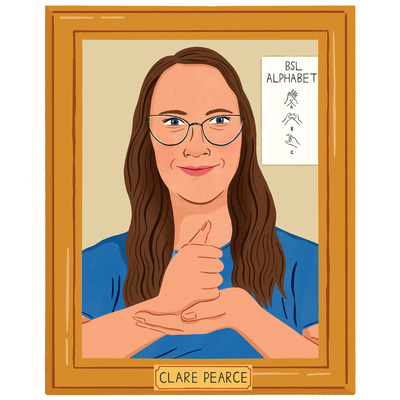
She completed an entry level sign language qualification at a local college, where she learned the alphabet and basic conversational skills.
“I love the language; it is really expressive. There is a beautiful depth to it,” she shared.
Pearce observed that even being able to sign the first letter of a word is useful during a sight test.
“It is amazing how just a little bit of sign language can really facilitate your eye examination. The patients reacted really positively,” she said.
A passion for accessible healthcare has also seen Pearce certify her two Cardiff practices as dementia-friendly.
Pearce emphasised her belief that optometry services should be available to everybody.
“Everybody deserves the best care and I will do what I can to make sure there aren’t barriers in place,” she said.
Pearce believes that now is an important time for the High Street in the UK.
“Within Wales there is a massive push to keep people in primary care. The role of the High Street optometrist is really important. I don’t think we will see that waning,” she said.
The practice manager putting a spring in Santa’s step
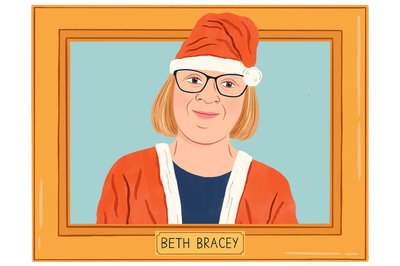
However, there will be no double-takes among the residents of Saltford and Keynsham, with the annual event holding a cherished place in the local festive calendar since it started in 2013.
“The race is well known now and people have Santa dash parties at their house – families will get together and cheer the Santas on when they run past,” Norville Opticians Keynsham practice manager Beth Bracey shared with OT.
For young children within the area, it is as though all their Christmases have – quite literally – come at once.
“The kids’ eyes nearly pop out of their heads when they walk around the corner and they see all of these people dressed as Santa. They are completely stunned by it,” Bracey shared.
Norville Opticians Keynsham, which joined Hakim Group in 2020, sponsors race numbers in the annual Santa run, while runners also collect their costumes from the practice in the lead up to the race.
The kids’ eyes nearly pop out of their heads when they walk around the corner and they see all of these people dressed as Santa
The race has raised £103,500 for different charities since it was started.
The oldest runners are in their 80s, while a mini dash is held for those aged under 12. A best dressed dog competition is also sponsored by a local grooming business.
Bracey, who volunteers wearing a high-vis vest with ‘Santa’s little helper’ on the back, shares that there is a strong sense of community spirit within Keynsham.
“The High Street is really important as a social hub where people meet,” she said.
“We are not just here to make money – we are here to help,” Bracey added.
The ophthalmologist improving eye care access with a van
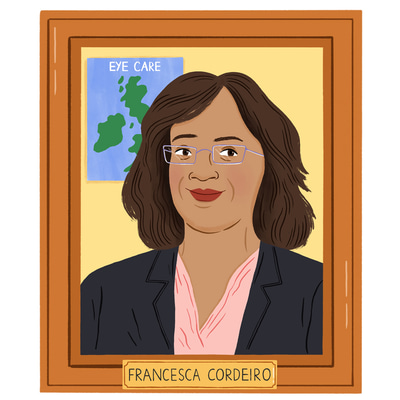
Professor Francesca Cordeiro, from Imperial College London, shared that this hesitance underlined a general trend of some groups within the population not volunteering for clinical trials.
“There are certain postcodes that we never see patients come from,” she shared.
Cordeiro came up with the idea of bringing a mobile unit to underserved populations, rather than asking them to come to the hospital.
A donated van was refurbished and equipped using funding from the Imperial Health Charity.
While currently in a proof-of-concept phase, if successful, the model has potential not just for clinical trials but for screening – which could result in earlier detection of disease.
Working as an ophthalmologist, Cordeiro observes patients presenting with avoidable sight loss.
“It is quite often that you see profound vision loss in someone presenting for the first time,” she shared.
She outlined her belief in “doing something different to make a difference.”
“You need to do disruptive things to make progress in any field… I think innovation in ophthalmology should try to eliminate sight loss ever occurring,” Cordeiro emphasised.
The optometry practice bringing the neighbourhood together
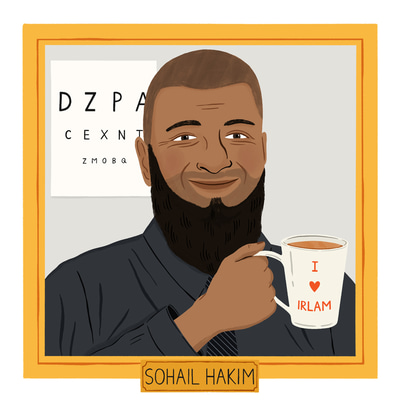
“So many patients come in and tell us ‘I remember sitting in that chair when I was five years old,’” he shared with OT.
The practice is located in Irlam and Cadishead – an industrial area of Manchester, with the 20,000 strong population separated from the city centre by a canal.
“It is a very close-knit community,” Hakim shared.
“People choose to stick to businesses that are local and reliable. There is that continuity in terms of who they are seeing and where they are going,” he added.
When I am travelling to work, it is like going from one home to another
Alan Miller Optometrists, also part of Hakim Group, has served its community for more than 90 years. The practice provides sight tests to members of the Greater Manchester police force and supplies safety eyewear to local manufacturers.
In pre-pandemic times, it was normal for patients to be offered a cup of tea and a biscuit.
“When I am travelling to work, it is like going from one home to another,” Hakim shared.
“The practice has been moulded by the community. It has always been there like the butcher, grocer, restaurant or newspaper store. This is the local practice that serves everyone’s eye care needs,” he concluded.
The optometrist promoting healthy lifestyles
A passion for prevention has seen optometrist Shamina Asif spearhead an initiative that involves optometry practices offering smoking cessation, alcohol screening and weight management services as well as NHS Health Checks.
The Healthy Living Optical Practices scheme has been introduced across Nottingham, Derbyshire and Greater Manchester, with Worcestershire recently commencing the service.
“As optometrists we are already picking up signs of cardiovascular disease and other systemic conditions, so it only makes sense to have public health commissioned services in optical practices too,” she shared.
Alongside public health specialist, Michelle Dyoss, Asif has set up a consultancy to help other local optical committees secure funding and establish HLOPs.
Asif emphasised that optical practice staff are in a good position to talk about healthy living and the prevention of disease.
“A lot of the patients develop good relationships with optical staff and with the introduction of other possible services – like mental health and signposting for domestic violence – the optical practice in effect becomes a hub to support their own communities,” she shared.
The optometrist giving children a Better Start
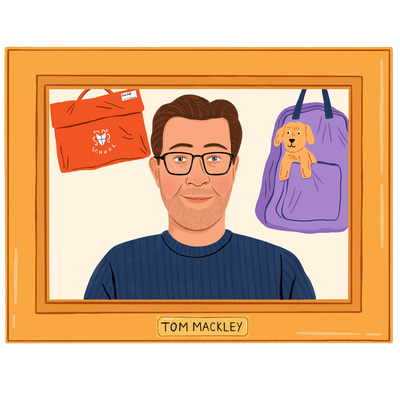
Optometrist Tom Mackley shared that the Better Start project aims to link families with with pharmacy, dental, and optical practices using community connectors – a person from their neighbourhood who the family trusts.
“We are trying to focus attention on where we can make a difference. Some families don’t readily access primary care services. We must understand the barriers and overcome them,” Mackley said.
Mackley is chair of the Lancashire & South Cumbria Local Eye Health Network for NHS England.
Once the pilot is completed in central Blackpool, there is potential to extend it to areas within Lancashire and South Cumbria with similar demographics.
“I’d be naïve to think that we are going to end health inequalities, but if we can demonstrate that families we have seen continue to engage in healthcare in the long-term, then I think we will have succeeded,” Mackley shared.
“Ultimately, we hope to improve health outcomes across the whole community. Better Start delivers that by focusing on the children,” he added.
The practice director donating part of her salary to local charities
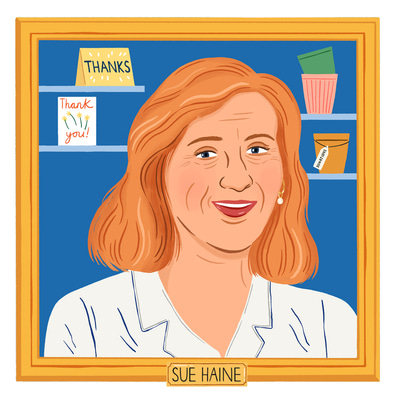
“There was never any question of exchanging money for a service – I grew up with the idea that one good turn deserves another,” she shared.
Haine is now a director of Haine & Smith Opticians, which has 20 independent practices in Wiltshire, Gloucestershire and Oxfordshire.
Since 1995, Haine and her fellow director have donated a portion of their salaries to a charitable trust that supports local endeavours.
More than £150,000 has been donated to 600 community organisations in that time.
Haine emphasised that it is the local people who keep Haine & Smith in business.
“We have a duty to look after them,” she shared.
Haine highlighted that High Streets are more than just shops – but places to meet and socialise.
She believes this quality will draw people back to the High Streets as the UK recovers from the pandemic.
“It can mean a great deal to people to be able to wave through a shop window to a familiar face,” she emphasised.


Comments (0)
You must be logged in to join the discussion. Log in